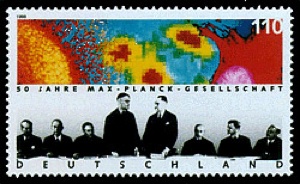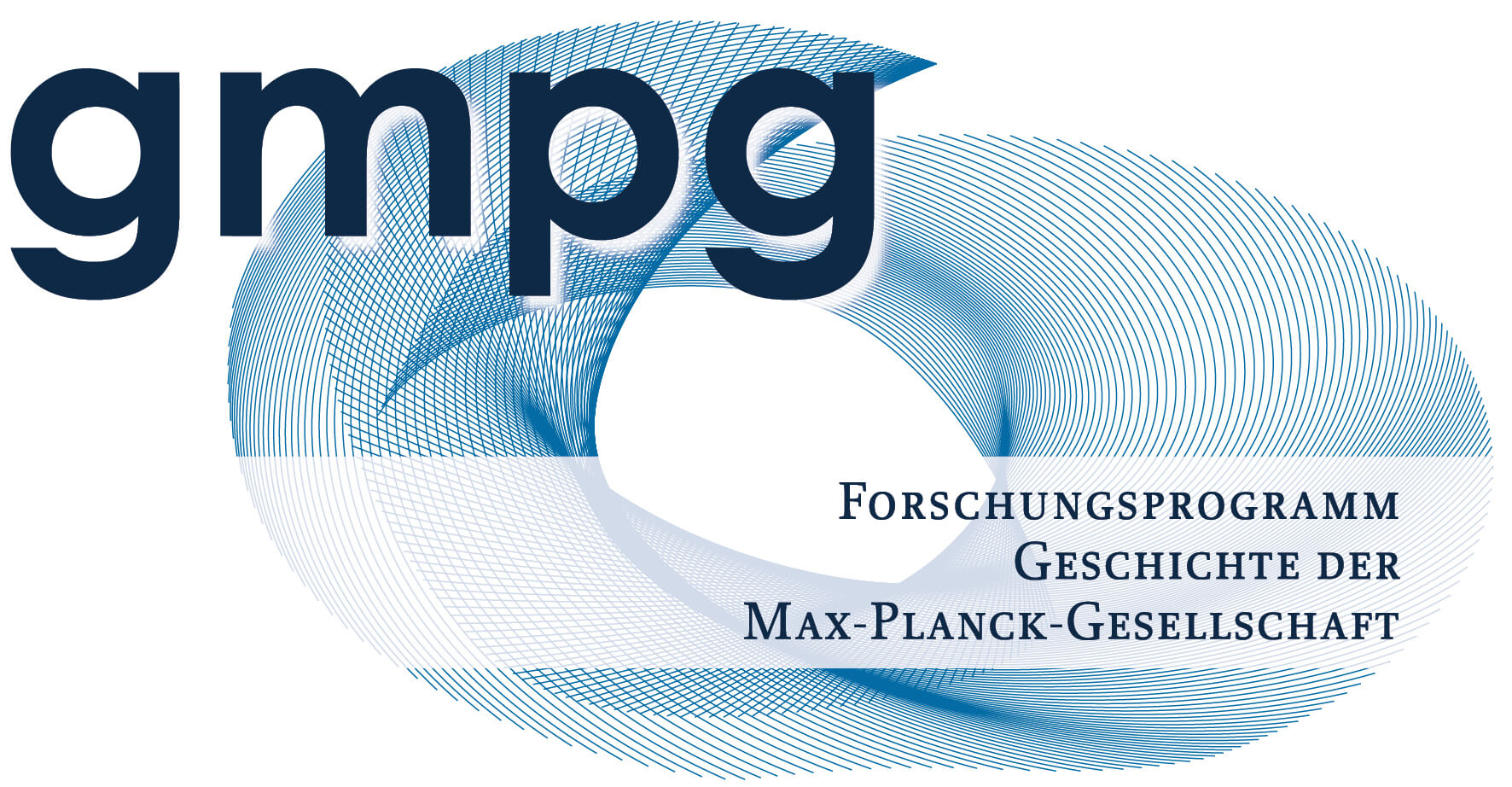
Deutsche Briefmarke zum 50-jährigen Jubiläum der MPG 1998. Photo: Birgit Kolboske
About the Program
The now completed Research Program »History of the Max Planck Society« (Geschichte der Max-Planck-Gesellschaft, GMPG) had emerged from Department I of the Max Planck Institute for the History of Science and its work in the historical epistemology of scientific institutions. Initiated by then president of the Max Planck Society (MPG) Peter Gruss the program assumed its work with the approval of hs successor, president Martin Stratmann in June 2014. Jürgen Kocka (Berlin Social Science Center), Jürgen Renn (MPI for the History of Science) and Carsten Reinhardt (University of Bielefeld) formed its directorate; the operational project management has been the responsibility of Florian Schmaltz.
The research program aimed at a comprehensive analysis of the MPG’s history embedded in the contexts of contemporary history and history of science. The investigated research period coverd the Society’s foundation in 1948 and ended with the presidency of Hubert Markl in 2002. Concerning the former presidential commission on the history of the Kaiser Wilhelm Society in National Socialism as well as the completion of the Aufbau Ost program the investigation will be extended until 2005. The research program has a focus on the dynamic interactions of research practice and institutional history; on the changes in working methods and research objectives of the MPG; on its local and global networks and how these are embedded in science, society and politics. Given that more than 80 institutes existed in 2002 plus 20 more that have been closed since 1948, the objective was not so much to investigate the history of individual institutes as a comprehensive approach allowing to study clusters of institutes active in the same scientific field.
To understand the fundamental and global changes in the modern world, a history of the twentieth century must acknowledge the tremendous impact of science and technology on political, economic, military, and social developments. In order to understand contemporary history of science, it is crucial to investigate Germany’s most prominent research organization: the Max Planck Society.
Despite numerous institute chronicles and anniversary editions, supplemented by a few significant historical case studies, the MPG still largely remains terra incognita. The research program will open new and so far neglected vistas on the contemporary history, politics, and economic development of the Bundesrepublik Deutschland and its international relations. Who were the key actors and networks? Where has the MPG paved the way for innovations? What were its successes and failures? How are its institutional structures connected to its scientific achievements? Does the MPG represent a Sonderweg in Germany?
Perceived in a self-reflexive perspective of historical epistemology, the MPG not only conducts research but becomes itself a field of research. Reflecting the massive investments in education and science in Western societies after the Sputnik crisis of 1957, historians of science are confronted with an exponential increase in information. Such big data requires innovative methodological approaches in the digital humanities to manage the vast complexity of research activities. The project approached this challenge with new tools and methods to cope with the complexity of big data by digitizing numerous sources for full text research. In addition, bibliometric analysis helped to identify innovative research fields and the impact of MPG researchers in the sciences.
From September 2014 to December 2022, fourteen researchers worked on the realisation of this extensive programme within the framework of interlocking sub-projects. They dealt with the topics of governance and finance (Jaromír Balcar), gender equality/gender (Birgit Kolboske), the social history of the MPG and its relations with the public (Juliane Scholz), the internationalisation of science/the MPG's international scientific relations (Alison Kraft), as well as the life sciences (Alexander von Schwerin), neuroscience and cognition research (Sascha Toppa). Schwerin), neuroscience and cognitive research (Sascha Topp), (bio)medical and clinical research (Martina Schlünder), chemistry, physics and materials science (Thomas Steinhauser), and earth system and ecosystem research (Gregor Lax). Other topics were dealt with by visiting scientists.
Despite all the necessary institutional proximity to the MPG, the scientific independence of the research programme is ensured. To cope with the enormous complexity and large amounts of data, the research programme applies the latest tools and methods of the Digital Humanities and is itself working intensively on the development of Big Data concepts.
In order to take into account the convergence of the period under investigation with the present, the research programme was committed to a strict and comprehensive set of regulations to safeguard data protection, data security and personal and copyright rights. These are in accordance with the provisions of the Federal Data Protection Act and the MPG's own »Rules for Safeguarding Good Scientific Practice«.
The results of this research will be published by Vandenhoeck & Ruprecht in the »Studies on the History of the Max Planck Society« or as preprints on this website.
